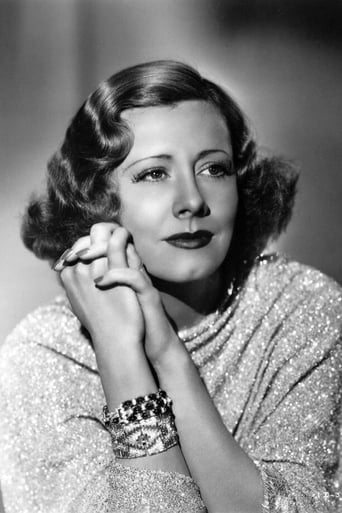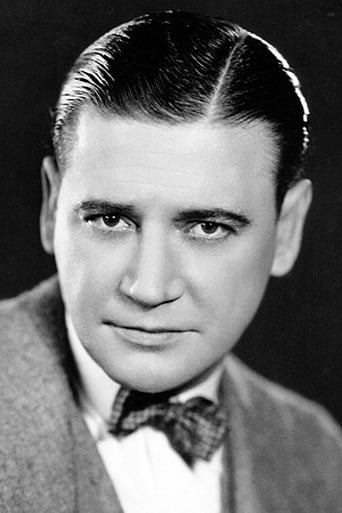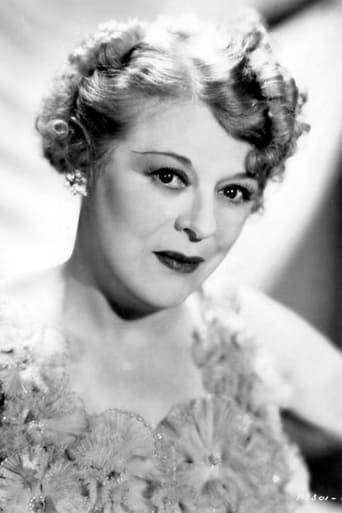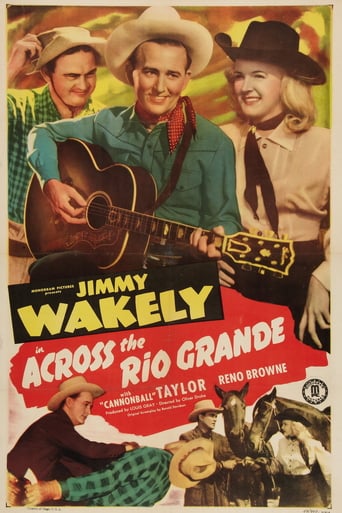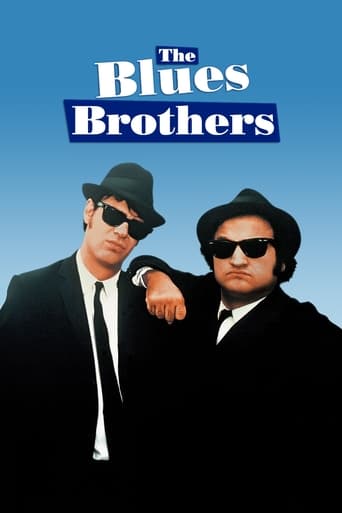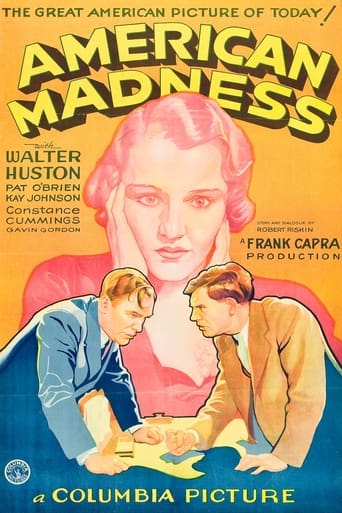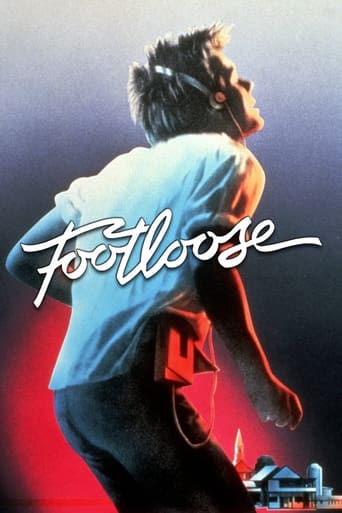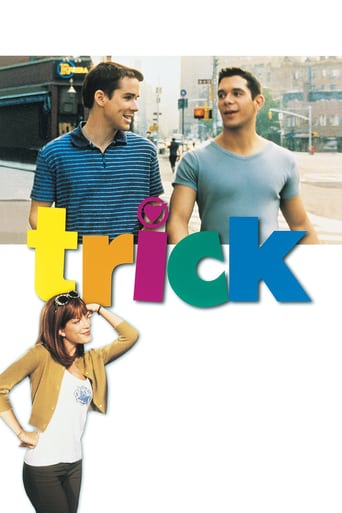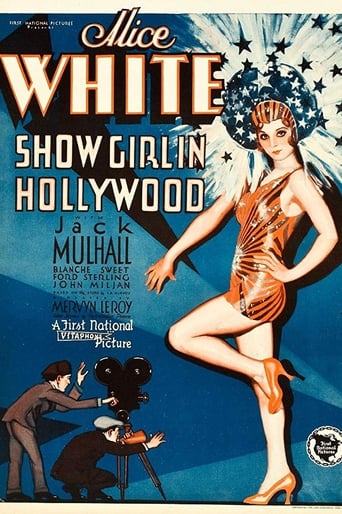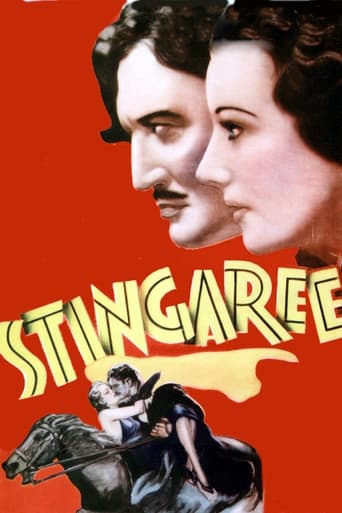
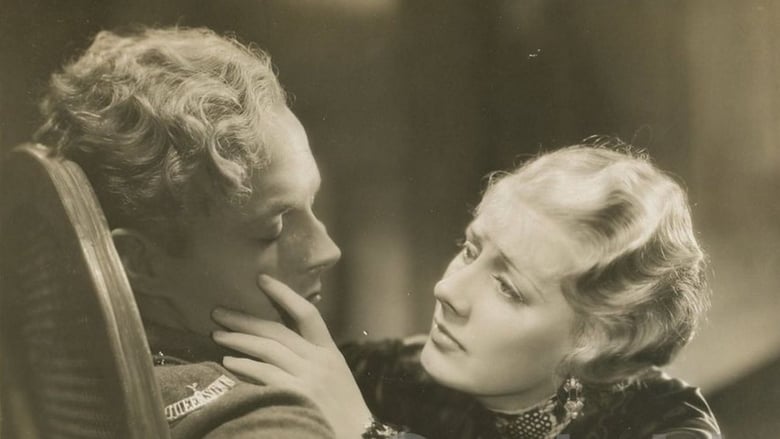
Stingaree (1934)
A young lady named Hilda who works as a servant for the wealthy Clarksons, sheep farmers, and dreams of being a great singer. An upcoming visit by Sir Julian, a famous composer arriving from London, drives jealous Mrs. Clarkson (an interfering biddy who fancies she can sing - but can't) to send away Hilda, so he doesn't hear Hilda has a good voice. Meanwhile, an infamous outlaw named Stingaree has just arrived in town and kidnaps Sir Julian, then poses as him at the Clarksons, where he meets Hilda a few hours before she is to leave.
Watch Trailer
Cast


Similar titles
Reviews
This rare RKO film from their golden age is an above average operetta that only suffers from the casting of its very American and British cast as Australians. Irene Dunne and Richard Dix, reunited from the western epic "Cimarron", play star-crossed lovers, a promising singer and the wanted outlaw she falls in love with. Dunne has been taken in by the outrageously vain Mary Boland who keeps singing whether anybody wants to hear her or not (presumably the latter). You soon realize that every time she starts chirping, "Yo Ho! Yo Ho! Yo Ho!" she's really shouting out of frustration of her lack of discovery. Boland, who played a nag better than anybody in the films of the 30's (just ask Charlie Ruggles' characters who were paired with her in a dozen films), emphasizes this female's phoniness, her constant cheeriness as a total fraud. When Dunne finally has enough and starts imitating this fish-wife, you can see why producers started looking at her for screwball comedies rather than the soap opera she had been playing for several years.Dix, as the titled character, is a bit over the top, his acting more out of a silent film with characteristics that most silent film stars still working in movies in 1934 had gotten rid of. He's also less romantic than the character should be. Andy Devine is always good for a laugh, and there are some good moments for the British Henry Stephenson and Reginald Owen as well. As always, Una O'Connor is a delightful screechy presence, her Irish maid not afraid of putting the boorish Boland in her place.This isn't a film for purists, but as entertainment, it really shines brightly among a few newly discovered "lost" films that even diligent collectors had been searching for over decades.
Australia, 1874. The famous bandit Stingaree is in the neighborhood; the prominent London music producer, Sir Julian Kent, is also visiting. Everyone is excited:Mrs. Clarkson (Mary Boland), the nutty (and annoying) lady of the vast Clarkson estate, is determined that she will impress Sir Julian with her singing. Mr. Clarkson (Henry Stephenson) is not so sure, but he is curious to see the famous Stingaree. Servant girl Hilda dreams of singing for Sir Julian herself—but Mrs. Clarkson is banishing her to the neighbors' during his visit. Hilda is crestfallen .might Sir Julian have been her once chance of escape from this lonely life?Irene Dunne is wonderful as Hilda, and her performance makes this picture worthwhile. When she sits down at the piano, thinking herself alone, and sings—what a beautiful song, and scene. Richard Dix is rugged yet refined as Stingaree, the dashing and notorious outlaw. He excels at disguises, takes bold risks and has a keen appreciation for music. One very exciting moment: he's leaving in a hurry, cops in pursuit — he races toward the front door — sees Dunne standing there — picks her up in his arms and carries her off with him! Andy Devine plays it fairly straight as Stingaree's loyal sidekick, Howie. (Neither Dix nor Devine attempts to sound remotely Australian or English, by the way—with the exception of Devine's hilarious phony accent when helping set up a robbery.) Conway Tearle is the devoted and reliable Sir Julian—it's a good performance but the role doesn't offer much except bland sincerity and mild passion. The plot is outrageously silly—a suave criminal with a musical ear finds a girl in the sticks who sings like an angel and he risks life and limb to promote her career. Nevertheless, the picture certainly has its moments. It's not every 1930s operetta-style musical that is highlighted by its songs, at least not to my taste but Irene Dunne's singing really is most excellent, and she creates a character we do want to cheer for. A couple of neat plot turns offer pleasant surprises right up to the rather abrupt but satisfying ending.Odd—but entertaining.
The red flags went up the moment I spotted William A. Wellman's name as the director of this hybrid western/musical which has RICHARD DIX as an Australian bandit named "Stingaree" who also happens to be a noticeably ungifted song writer responsible for some of the numbers IRENE DUNNE is forced to sing in this film. He's a bandit who finances the career of a pretty operatic singer. (One number, in particular, gets quite a tiresome workout from Dunne's quavering soprano).Wellman's name is usually associated with much sturdier material than he has here--films like WINGS, BEAU GESTE and THE HIGH AND THE MIGHTY. On the other hand, STINGAREE is not a formulaic musical so perhaps he knew what he was getting into.While Miss Dunne is one of my favorite actresses (and I know she was chosen to play Magnolia in James Whale's SHOW BOAT), she has never been one of my favorite sopranos and this film didn't change my mind at all. Indeed, the film itself does nobody any great favor because the plodding script goes off in so many different directions, you're never quite sure whether it's meant to be serious or comic. Only when ANDY DEVINE and MARY BOLAND give out with some non-subtle comic relief in supporting roles can we be sure what the intentions are.Let's just say that not every film that turns up on TCM's "lost and found" package of RKO films deserves to be resurrected--nor are they necessarily classics, so to speak. STINGAREE is one of them, best forgotten as an outmoded and lumbersome sort of film easily ignored unless you happen to be an ardent admirer of either Miss Dunne or Mr. Dix, both of whom have done better work elsewhere.Dunne excelled in the '30s and '40s as a woman who was usually one step ahead of, and smarter than, the man (a more feminine version of the characters Katharine Hepburn often played). As the ingenue of a mixed up western, she's not exactly in her element and Richard Dix (even with a mustache) is just as hard to believe as a bandit as Nelson Eddy was in THE GIRL OF THE GOLDEN WEST. At least he and Jeanette had some good songs to sing.For comic relief, we have reliables like ANDY DEVINE, MARY BOLAND (a stridently over-mannered performance), HENRY STEPHENSON and UNA O'CONNOR on hand, but nothing really helps.Summing up: A curious misfire that must have had a target audience once upon a time in pre-code 1934, but that audience no longer exists outside a small clique who love anything made in the '30s, whether good, bad or indifferent, as long as TCM presents it. The title song sounds suspiciously like a Rudolf Friml reject.Trivia note: Dunne and Dix were both better received in CIMARRON made three years earlier and without music.
STINGAREE was the first of the great Irene Dunne musicals: SWEET ADELINE; ROBERTA; SHOW BOAT; HIGH, WIDE, & HANDSOME; and JOY OF LIVING, count em, six films (aside from 1930's LEATHERNECKING, but no one counts that!) is all you got. How can that be? She's my favorite! She sang in other pictures, but these six were the full-blown star vehicles for Kern's favorite movie soprano. Without a doubt, STINGAREE is the strangest, and, oh yeah, Jerome Kern is no where to be heard. We get some "Martha" and "Faust," and mostly several reprisals of a song called "Tonight is Mine," written by the talented Australian bandit, the Stingaree, himself. He let's her have this song, dedicated to her, and thus sets her on her path to international Opera acclaim. Sure, she is assisted by impresario Conway Tearle, and along the way we meet dignitaries and governors and even Disraeli, but no one can ever touch her true heart like the Stingaree could. And why not, after all, it is RKO's resident veteran stud, the Rod Taylor of the Twenties, Mr. Richard Dix who is portraying the dashing, debonaire, and musically inclined robs-from-the-rich, etc, legend. We get the music, the scenery, the costuming, the lush period detail, the horses, the chases, the fisticuffs, the... hey, what is this, a Richard Dix western, or is it one of the great Irene Dunne musicals? Well, there you have it. Based on E. W. Hornung's (RAFFLES) novel, STINGAREE is one of the most neglected, forgotten hybrids of the decade. It was screened in Syracuse last year, and while everyone questioned the reasoning behind its creation, all agreed it was an unusual, entertaining achievement. For STINGAREE is, in fact, a rather exciting (if fabulously improbable) action picture AND a desert topping. It was one of the big RKO releases of that season, and as such, boasts the best the studio could muster, and this included some important character work by some of our finest, including Andy Devine as Mr. Dix's (and the pictures') comedy relief side-kick (another vote for "it's a western"). Henry Stephenson (DOUBLE HARNESS; HEARTS DIVIDED; CONQUEST), not to be confused with another marvelous actor, James Stephenson (THE LETTER), is on hand to play the husband of a flighty, self-important woman who attempts to stand in poor Irene Dunne's way, and who else could portray such a woman but the great Mary Boland? Not simply a pitiful comedic plot device, Boland's fearless performance blends the charming and the likeable (and often purposefully annoying) Mary Boland, with un-reigned egoism, calculated duplicity, and an unexpected Agnes Moorehead-level guile. Let's hope they can find the funding to restore this classic!


